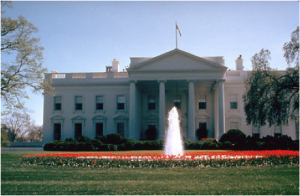 Robert A. Dahl, called “the foremost political theorist of his generation” by Theodore J. Lowi, died at the age of 98 on Wednesday, February 5th. Dahl taught at Yale for 40 years and was awarded a multitude of honors for his work during his lifetime.
Robert A. Dahl, called “the foremost political theorist of his generation” by Theodore J. Lowi, died at the age of 98 on Wednesday, February 5th. Dahl taught at Yale for 40 years and was awarded a multitude of honors for his work during his lifetime.
Professor Dahl created the standard definition of power used in political science. It states: “A has power over B to the extent that he can get B to do something that B would not otherwise do.” In other publications, Dahl tackled many topics, including the Constitution, Congress, welfare and foreign policy. One of his best-known pieces is, arguably, “Who Governs? Democracy and Power in an American City” (1961), which studied the political workings of New Haven. The book rivaled the idea that America was being controlled by big business and instead revealed a city in which a multitude of groups were competing for influence.
Initially, Dahl defended pluralistic competition, writing in the text mentioned above, “Instead of a single center of sovereign power, there must be multiple centers of power, none of which is or can be wholly sovereign.” However, later publications reveal that Dahl also theorized that powerful, politically adept minorities could smother other small groups or even the majority. Specifically, he applied this theory to corporations, worrying that corporate managers could determine the direction of their companies without consulting shareholders or public opinion. He advocated for outsider influence, such as interest group of government interference, in corporate affairs.
While Dahl supported the use of data and empirical analysis when studying politics, he often brought political scientists he worked with back to “the big picture.” He conceded that most peoples’ interests in politics spurred from how politics relate to work, health, family and recreation, if they are even interested in politics at all. “Politics,” he wrote, “is a slideshow in the great circus of life.”
For more information on Robert A. Dahl and his work please visit http://www.nytimes.com/2014/02/08/us/politics/robert-a-dahl-dies-at-98-defined-politics-and-power.html?_r=1.